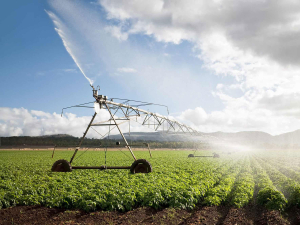Fruit fly discovery puts growers, exporters on edge
Fruit growers and exporters are worried following the discovery of a male Queensland fruit fly in Auckland this week.
 Water allocation and storage has been a hot topic of discussion during HortNZ’s recent grower meetings.
Water allocation and storage has been a hot topic of discussion during HortNZ’s recent grower meetings.
Water allocation and storage has been a hot topic of discussion during HortNZ’s grower meetings held recently around the country.
Growers are dealing with the implications of the El Nino weather pattern now prevailing over New Zealand, which means drier conditions for many regions, says HortNZ chief executive Nadine Tunley.
“This is why ensuring water resilience through availability and storage is a key priority in the Aotearoa Horticulture Action Plan (AHAP) and why we need policies to support the expansion of, and investment in, water storage,” she says.
“This focus area in AHAP calls for strategic, evidence-based co-investment in regional water storage for climate change adaptation. We know horticulture is a very efficient user of water but needs a higher degree of reliability than other land uses.
“Unfortunately, when a first-in-served approach is used to allocate the volume of water allowed to be taken from rivers, and an ecosystem health approach is used to set the minimum flow, horticulture gets caught with the most significant impacts due to the importance of water reliability for fruit and vegetable quality,” says Tunley.
In their discussions with the new Government, HortNZ have been clear that investment in land and water is critical if country is to maintain a thriving horticulture sector.
“We cannot grow without the use of New Zealand’s highly productive land. We cannot grow without access to water,” says Tunley.
“Current policy settings and attitudes – particularly in the areas of land and water use – do not support horticulture’s growth so it has been encouraging to see the new Government’s commitment to exploring water storage solutions.
“In addition to prioritising water allocation and developing policy settings that support the expansion of and investment in water storage, we also need to ensure that water consent timeframes give growers the certainty to invest and increase production, while improving environmental outcomes. That’s why we will be continuing to push the case for growers with Government in the freshwater settings space.”
Tunley says over the past few weeks, she has heard the message loud and clear- growers want reliable access to water and discharges and policy setting and investment that enable water storage so horticulture can expand in a way that supports freshwater health.
The grower meetings also discussed climate change and adaption and food security and supply.
As New Zealand marks the United Nations’ International Year of the Woman Farmer 2026 (IYWF 2026), industry leaders are challenging the misconception that women only support farming.
Fonterra’s impending exit from the Australian dairy industry is a major event but the story doesn’t change too much for farmers.
Expect greater collaboration between Massey University’s school of Agriculture and Environment and Ireland’s leading agriculture university, the University College of Dublin (UCD), in the future.
A partnership between Torere Macadamias Ltd and the Riddet Institute aims to unlock value from macadamia nuts while growing the next generation of Māori agribusiness researchers.
A new partnership between Dairy Women’s Network (DWN) and NZAgbiz aims to make evidence-based calf rearing practices accessible to all farm teams.
Despite some trying circumstances recently, the cherry season looks set to emerge on top of things.

OPINION: Here w go: the election date is set for November 7 and the politicians are out of the gate…
OPINION: ECan data was released a few days ago showing Canterbury farmers have made “giant strides on environmental performance”.